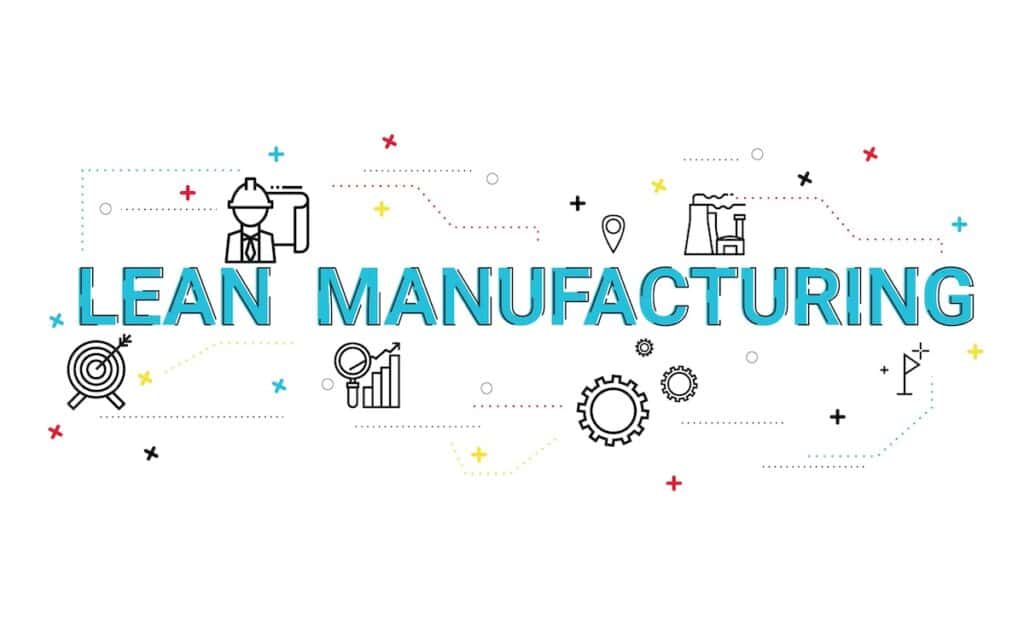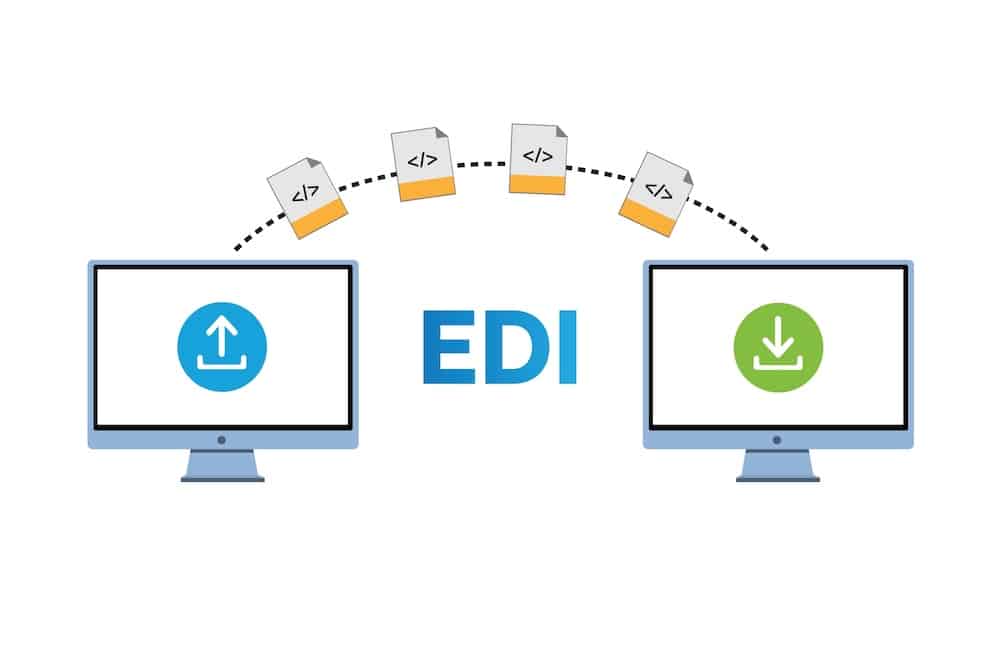Embrace Efficiency: Your Path to Lean Manufacturing Mastery
Are you constantly battling inefficiencies in your manufacturing processes? Do you find yourself navigating through operational challenges, striving to boost productivity while minimizing waste? If these scenarios resonate with you, you’re not alone. In the dynamic world of manufacturing, embracing lean principles isn’t just an option; it’s a necessity for staying competitive and thriving.
Imagine transforming your operations: where every process is fine-tuned for maximum efficiency, waste is dramatically reduced, and productivity soars. This isn’t just an ideal scenario; it’s a practical reality that lean manufacturing principles can bring to your business. Whether you’re in the automotive, pharmaceutical, or any other manufacturing sector, the principles of lean manufacturing are the key to unlocking this transformation.
In this journey, you’re not just improving processes; you’re reshaping your entire operational mindset. Lean manufacturing is about seeing the potential in every aspect of your production line and harnessing it to its fullest. It’s about turning challenges into opportunities for growth and efficiency.
Let’s dive into how lean manufacturing principles can revolutionize your operations, bringing tangible benefits that go beyond the production floor. This is your guide to mastering lean manufacturing, tailored for the unique challenges and opportunities that you face in your industry.
Unpacking Lean Manufacturing
Simplifying the Complex: The Five Pillars of Lean
Lean manufacturing principles, at their core, are about creating more value with fewer resources. These key principles focus on maximizing value to the customer while eliminating waste along the way. It’s a philosophy that originated in the Japanese manufacturing industry and has since become a global standard for operational excellence. Let’s break down this concept into its five fundamental principles:
Identifying Value: Every product or service has a value as perceived by the customer. The first step in lean manufacturing is to define this value from the customer’s perspective. What do they really need? What are they willing to pay for? Understanding this helps in focusing efforts on what truly matters.
Mapping the Value Stream: This involves looking at the entire lifecycle of a product, from raw materials to the end-user. By mapping out all the steps in this process, businesses can identify and eliminate anything that doesn’t add value.
Creating Flow: Once the value-adding steps are identified, the next goal is to ensure they flow smoothly without interruptions, delays, or bottlenecks. This seamless flow makes operations more efficient and responsive.
Establishing Pull: Instead of pushing products onto customers, lean manufacturing advocates for a pull approach, where products are made based on actual demand, reducing waste and improving responsiveness.
Pursuit of Perfection: Lean is not a one-time initiative but a continuous journey towards perfection. This involves constantly seeking ways to reduce waste and improve processes.

5S is another way to think about lean manufacturing principles: Sort, Set in Order, Shine, Standardize, and Sustain
Real-World Application: A Snapshot of Lean Manufacturing Principles in Action
Let’s consider a scenario where lean principles are put in place. Lean manufacturing processes are implemented to improve manufacturing processes by focusing on cost-cutting measures and efficiency. A pharmaceutical company invests the time and effort to implement lean principles. Initially, their production line might have used redundant quality checks and complex inventory management, leading to delays and increased costs. By applying lean manufacturing, they streamline their processes, focusing only on value-adding steps. This not only accelerates production but also significantly reduces costs, leading to a more efficient and profitable operation.
The Transformative Benefits of Eliminating Waste in Lean Manufacturing
While the primary goal of lean manufacturing is to enhance efficiency, its benefits extend far beyond just streamlining processes. Let’s explore how adopting lean principles can transform an entire operation.
Increased Efficiency and Productivity: At its heart, lean manufacturing principles are about doing more with less. By eliminating waste in all forms – whether it’s excess inventory, unnecessary steps in a process, or idle time – lean manufacturing helps companies operate more efficiently and increase productivity.
Cost Reduction and Waste Minimization: Lean manufacturing is synonymous with cost savings. By identifying and eliminating non-value-adding activities, companies can significantly reduce waste and associated costs. This not only improves the bottom line but also contributes to a more sustainable operation.
Improved Quality and Customer Satisfaction: Lean principles emphasize quality control at every step of the manufacturing process. This focus on quality leads to fewer defects, higher customer satisfaction, and a stronger brand reputation.
Enhanced Flexibility and Scalability: In today’s fast-paced market, the ability to quickly adapt to changing demands is crucial. Lean manufacturing, with its emphasis on agility and continuous improvement, allows companies to be more responsive and scale operations efficiently.
Case in Point: A Consumer Goods Success Story
Let’s take a look at another scenario where lean manufacturing principles are applied. This time, consider a consumer goods manufacturer struggling with overproduction and inventory issues. By implementing lean manufacturing and a pull system, they will be able to shift to a demand-driven model, significantly reducing their inventory costs and improving their ability to respond to market changes. The result? A more agile operation, reduced waste, and a healthier bottom line.
Lean Manufacturing in Action – Diverse Industry Perspectives
Tailoring Lean for Industry-Specific Challenges
Lean manufacturing is not a one-size-fits-all solution; its principles are versatile and can be adapted to the unique challenges of different industries. Let’s delve into how various sectors apply lean to their advantage.
Pharmaceutical Industry
In an industry where precision and compliance are paramount, lean manufacturing helps streamline processes, reduce errors, and maintain high-quality standards. By implementing lean, pharmaceutical companies can ensure compliance with stringent regulatory requirements while enhancing operational efficiency.
Automotive Manufacturing
The automotive industry, known for its complex supply chains and high-volume production, leverages lean to optimize production flow, reduce lead times, and minimize inventory costs. This results in faster production cycles and a more responsive supply chain.
Consumer Packaged Goods (CPG)
For CPG companies, lean manufacturing is key to managing the fast-paced, high-variety production environment. Lean helps these companies reduce waste, manage complexity, and respond swiftly to changing consumer preferences.

The Digital Edge in Lean Manufacturing
Harnessing Technology to Amplify Lean Principles
In the era of digital transformation, technology plays a pivotal role in enabling and enhancing lean manufacturing practices. The evolution of lean thinking, originating from the Toyota Production System (TPS) and promoted by key figures like James Womack, Daniel T. Jones, and John Krafcik, has significantly shaped modern manufacturing principles. Let’s explore how digital solutions like ASC Software can be game-changers in your lean journey.
Integrating Advanced Software Solutions
Modern software solutions bring unprecedented levels of efficiency and accuracy to lean manufacturing. Tools like ASC Software offer real-time tracking, automated workflows, and data analytics, making it easier to identify waste, optimize processes, and make informed decisions.
Inventory Management and Real-Time Tracking
One of the cornerstones of lean manufacturing is efficient inventory management. The Toyota Production System plays a crucial role in efficient inventory management by emphasizing just-in-time production and minimizing waste. ASC Software provides sophisticated inventory tracking systems that ensure you have the right amount of inventory at the right time, significantly reducing waste and costs.
Quality Control and Compliance
In industries where quality and compliance are non-negotiable, technology ensures these standards are consistently met. ASC Software’s quality control modules help maintain high standards, ensuring products meet both customer expectations and regulatory requirements.
Demand Forecasting and Production Scheduling
Predicting customer demand and scheduling production accordingly can be challenging. ASC Software’s advanced forecasting tools use historical data and market trends to accurately predict demand, ensuring that production schedules are aligned with actual market needs.
Embarking on a Path of Continuous Improvement
Lean manufacturing is more than a set of principles; it’s a journey towards operational excellence. Whether you’re just starting out or looking to refine your existing processes, the path to lean manufacturing is a continuous cycle of improvement in manufacturing operations. Here’s how you can begin your journey:
Assessment and Planning: Start by assessing your business’s current processes. Identify areas of waste and inefficiency and set clear objectives for what you want to achieve with lean.
Employee Engagement and Training: Lean manufacturing thrives on employee involvement. Training your team and encouraging a culture of continuous improvement is crucial for sustained success.
Implementing Lean Practices: Begin applying lean principles to your processes. Start small, measure the impact, and gradually expand your lean practices.
Leveraging Technology: Utilize technology solutions like ASC Software to streamline your lean implementation. From inventory management to quality control, technology can be a powerful ally in your lean journey.

Unlock Your Potential with a Personalized Lean Consultation
Are you ready to elevate your manufacturing processes and embrace the power of lean principles? ASC Software is ready to be your partner in this transformative journey. Our experts are not just software providers; they are seasoned lean manufacturing strategists dedicated to helping you achieve operational excellence.
Why Choose a Personalized Consultation?
- Tailored Solutions: Every industry has its unique challenges. Our experts provide customized solutions that fit your specific needs.
- Expert Insights: Benefit from the wealth of knowledge our team has accumulated from years of implementing efficient warehouse strategies across various sectors.
- Strategic Planning: We don’t just look at the present; we help you plan for a future where lean manufacturing principles drive your growth and success.
Take the First Step
- No-Obligation Discussion: Our consultation is designed to understand your needs and explore potential solutions with no pressure.
- Discover Opportunities: Learn how ASC Software can streamline your processes, reduce waste, and increase efficiency.
- Plan for Success: Leave the consultation with a clear roadmap of how to implement lean principles effectively using ASC Software.
This is more than just a consultation; it’s the beginning of a journey towards a more efficient, productive, and profitable future. Don’t let complexity hold you back. Embrace simplicity, efficiency, and excellence with ASC Software.
Schedule your personalized consultation today and take the first step towards transforming your operations with lean manufacturing principles.
Lean Manufacturing Conclusion: A Strategy for the Future
As we’ve seen, lean manufacturing is more than a set of principles; it’s a transformative mindset that drives efficiency, quality, and continuous improvement of the production process. In today’s competitive business landscape, embracing lean methodologies can be a decisive factor in achieving and maintaining industry leadership. With the strategic application of solutions like ASC Software, your business can effectively implement these principles, leading to significant enhancements in efficiency, cost savings, and customer satisfaction.
Ready to Transform Your Operations?
If you’re inspired to embark on or enhance your lean manufacturing journey, ASC Software is here to guide you. Our team of experts is ready to help you tailor a lean strategy that aligns perfectly with your business goals.
Contact us today to learn how our solutions can empower your lean transformation and take your operations to the next level of excellence.




